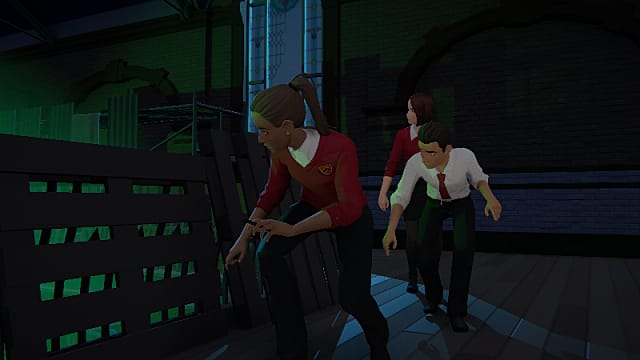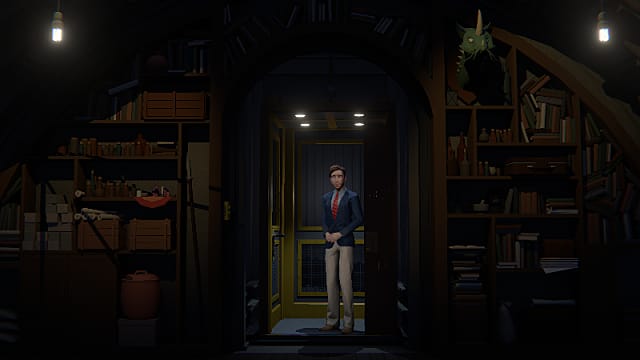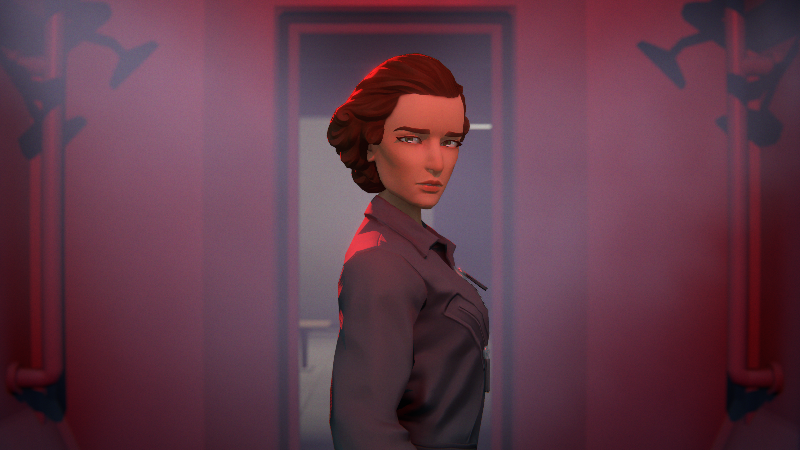For me, there’s no seal of quality as trustworthy as the Annapurna Interactive logo. By my count, no other publisher delivers such a consistently impressive body of work at the rate of Annapurna.
Developer Variable State’s long-awaited follow-up to 2016’s Virginia continues this industry-leading trend. Last Stop feels, in many ways, like Annapurna: The Video Game. It’s got all the hallmarks of the arthouse label: a unique, twisting story, cinema-quality original music, a cast of characters that seem like no one else in games, et al.
But none of this is to say Last Stop is stale. It’s absolutely unpredictable, and it’s compelling enough to merit playing in one long go. That’s not to mention it’s an all-around more tangible tale than the team’s debut effort. With Last Stop, Variable State proves it’s no one-hit-wonder and cements itself as a name to watch.
Last Stop Review: At the Junction of Magic and the Mundane
Last Stop tells three anthological stories in modern-day London, but not before opening with a purposely confounding flashback that hints at strange science fiction leanings. It promises the human dramas that are to unfold thereafter are merely a twist away from becoming something much different.
For each of the game’s three main characters — John, a single dad with full-on dadbod; Meena, a ruthless and unapologetic workaholic; and Donna, a self-liberated high schooler — themes of secrecy and the masks they each wear in their lives are prevalent throughout.
Players can choose in which order they unravel each character’s story within reason. Completing each character’s first chapter, for example, will open up the trio of Chapter Twos, where players can once again play them out in any order. I found I enjoyed the story most by playing them left to right in the selection screen each time. The game’s “Previously On” sections deliver an exciting TV-style quality I’ve tended to love in games like Alan Wake before it.
While the story is billed as an anthology, it doesn’t take long for the once disparate threads to begin to tangle. This first happens in satisfyingly subtle ways — “wait, isn’t his neighbor also her coworker?” — before tangling into a three-pronged narrative whirlwind that culminates in a (probably) polarizing finale.
For what it’s worth, I loved it.
I feel each story is more or less as compelling as the others, though if I had to pick a favorite, it’d be Meena’s, as her duality as a workaholic secret agent and failed parent and wife make for a fascinating blend of the mundane and the exceptional. Meanwhile, John’s story deliberately pulls from a movie trope, only to not really subvert it in any way, going down a familiar path to its conclusion, albeit through the still-unique filter of the stories’ convergent overarching finale.
Each story stands on its own well, presenting a different genre even while they revolve around pretty normal people caught up in extraordinary situations. The way they come to a head is exciting, because although it’s apparent early on that their separate lives will collide in due time, how they get there and what happens next is really what makes Last Stop worth talking about.
As usual with such story-heavy games, its merits live and die by the strength of that story even as they’re hard to talk about without spoiling things. Think of Last Stop as something like Crash meets The Outer Limits, with a bit of Indiana Jones later on. It’s not like anything else you’ve seen in games, and for that reason, story-focused players should make time for it.

Playing Last Stop feels like many a narrative adventure game from the past decade. Players will make frequent dialogue decisions, hastened by a timer, and interact with the world from an endless supply of cinematic camera angles, sometimes pouring cereal, other times pouring over files during a B&E.
You’ll hardly ever make choices though, as scenes mostly go where they’re meant to no matter what you say — at least until some tough final decisions. In many cases, you could feasibly not reply at all and the game would play itself in between more exploratory scenes.
It looks really good, too, using a stylized and maturish Pixaresque blend of colors and smooth textures. Thanks to some hyperactive eyebrows, characters emote well enough to deliver their lines, but their expressions and animations are a bit wooden and harken back to the days of Telltale’s faulty processes, which does sometimes hinder the filmic intentions of Last Stop.
More of a saving grace is the game’s audio, which is absolutely stellar in every way. Last Stop is voiced expertly, even as none of the names jump off the credits as familiar to me.
The original music is composed by Lyndon Holland, who previously scored Virginia to what I’d call perfection. Here the inspirations are less obvious than Holland’s borrowing from Twin Peaks five years ago, but the results are no less enchanting. He’s simply a brilliant composer and a perfect match for Variable State’s penchant for deliberate, dreamy weirdness.
Last Stop Review — The Bottom Line

Pros
- A fun, eclectic blend of anthological tales that come to a head inventively
- Brilliant music and voice acting
- Paced to perfection as episodes you’ll want to binge in one sitting
Cons
- Lackluster animations betray some of the game’s cinematic intentions
- Some leaning on narrative tropes
Last Stop feels like a more palatable follow-up to Variable State’s ponderous premiere, but one that is made without sacrificing all of the burgeoningly signature weirdness of the small team.
Though the story takes risks, it manages to rein them in a bit, as not to drown its players in metaphor, something the team once seemed happy to do in 2016. Questions go unanswered and some mysteries are once again meant to idle in the player’s mind, but in all, Last Stop is more popcorny than I expected but no less entertaining.
[Note: Variable State provided the copy of Last Stop used for this review.]








Published: Jul 14, 2021 01:35 am